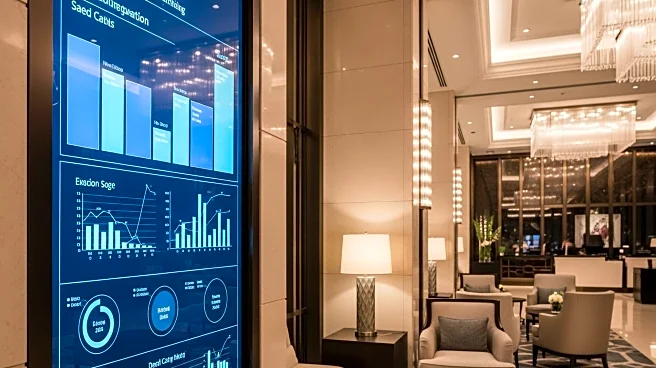What's Happening?
The hospitality industry is increasingly turning to data segmentation to enhance guest experiences and drive revenue. Hotels are moving beyond broad demographic targeting to focus on microsegmentation, which allows them to tailor marketing campaigns to specific guest segments. This approach has led to significant increases in direct bookings and revenue. For instance, Bunkhouse Hotels, a North American hospitality group, generated $6.1 million in lifetime revenue through segmented campaigns. Similarly, Ambiente Sedona, a luxury property in Arizona, achieved $780,000 in lifetime direct revenue by aligning marketing efforts with guest intent. These strategies have proven effective in creating personalized guest experiences and fostering customer loyalty.
Why It's Important?
The shift towards data-driven segmentation in the hospitality industry is crucial for maintaining competitiveness and enhancing profitability. By understanding and targeting specific guest segments, hotels can deliver more personalized experiences, leading to higher guest satisfaction and loyalty. This approach not only boosts direct bookings but also reduces reliance on third-party booking platforms, thereby increasing profit margins. As hotels continue to adopt these strategies, they can expect to see improved marketing efficiency and stronger customer relationships, which are essential for long-term success in a highly competitive market.
What's Next?
As more hotels adopt data segmentation strategies, the industry is likely to see a continued increase in personalized marketing efforts. This trend may lead to further innovations in how guest data is collected and utilized, potentially involving advanced technologies such as artificial intelligence to refine segmentation processes. Hotels that successfully implement these strategies will likely gain a competitive edge, attracting more direct bookings and enhancing guest loyalty. Additionally, the focus on personalization may drive changes in how hotels design their services and amenities to better meet the needs of their target segments.
Beyond the Headlines
The move towards data segmentation in the hospitality industry raises important considerations regarding data privacy and security. As hotels collect and analyze more guest data, they must ensure compliance with privacy regulations and protect sensitive information. This shift also highlights the growing importance of data analytics skills within the industry, as hotels seek to leverage data insights to drive business decisions. Furthermore, the emphasis on personalization may influence broader trends in consumer expectations, with guests increasingly seeking tailored experiences across various sectors.









